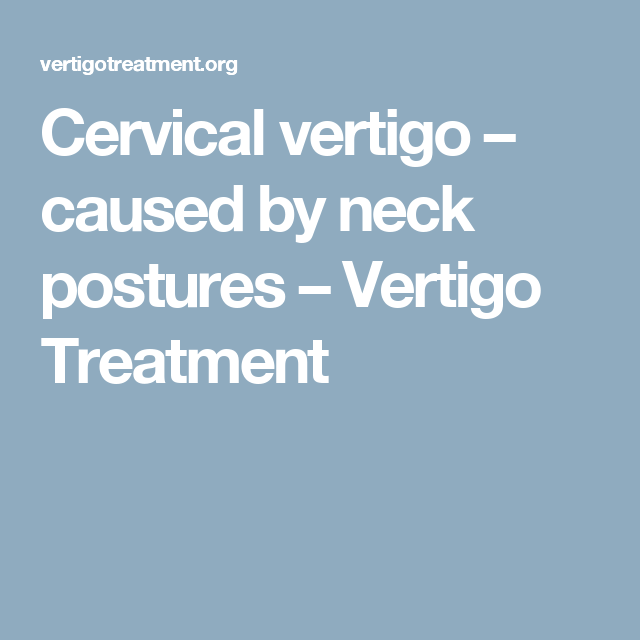

Herniated discs usually occur in the lower back, but they can also occur in the cervical spine. It's a common symptom of spondylosis, but it can also happen without spondylosis. Herniated DiscĪ herniated disc presses against the nerves in your spine, which can cause severe pain. But, there are certain treatments that can relieve the pain and cervical vertigo caused by the condition. Sadly, arthritis becomes more and more common with age. It's a bone disease that occurs due to the wear and tear of the spongy disc in between the vertebrae of your spine. Cervical SpondylosisĬervical spondylosis is a type of osteoarthritis that specifically affects the cervical spine. Fortunately, this can be cleared up with some neck posture exercises. It has caused the muscles at the back of our neck to weaken and tighten over time. This is due to the constant straining of our necks towards our computer screens and mobile devices. A majority of us have developed a forward head syndrome, also known as tech neck. These days, more and more people suffer from poor posture-mainly due to technology. When you have poor posture, your neck muscles tighten up restricting the proper blood flow in your neck area. The main cause of cervical vertigo is the disruption of blood flow to the inner ear or brain stem. We'll go through the most common below to help uncover the root cause of your cervicogenic dizziness.

There are several causes of cervical vertigo-from poor posture to different neck injuries and diseases. Intense exercise or even something as simple as a sneeze can exacerbate your condition. Try to avoid any rapid head movement when you're experiencing cervical vertigo, or your symptoms might get worse. loss of vision or distorted vision when moving the head.ear pain and congestion accompanied by ringing and/or swishing sounds.

loss of balance while walking, standing, or sitting.There are several other symptoms that might accompany your dizziness. When the vestibular apparatus malfunctions, it sends inaccurate information to our brains, resulting in cervicogenic dizziness.Ĭervical vertigo doesn't just give you feelings of dizziness.

It informs the brain about the relative position of the head to one's surroundings. The vestibular system is partly responsible for our eye movement, coordination, and balance. The muscles and joints in the neck contain various receptors that send signals to the brain, eyes, and inner ear, also known as the vestibular system. But did you know that there's actually a name for this neck-related dizziness? Let's start by defining cervical vertigo.Ĭervical vertigo is a condition caused by several neck-related issues that makes a person feel as if the world is spinning. In this article, we've included everything you need to know about neck-related dizziness-from the different causes to the best course of treatment. This ailment can be worrisome and unsettling. Neck pain and dizziness often go hand in hand. Can neck problems cause dizziness? Don't be surprised if you ever experience pain in the neck paired with dizziness. If you've been struggling with pain in your neck accompanied by feelings of dizziness, you are likely wondering if the two are related.


 0 kommentar(er)
0 kommentar(er)
